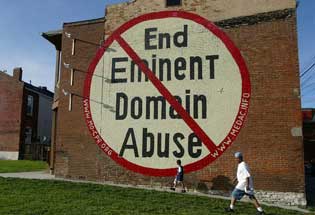petitioning
Virginia Beach officials won’t tell a group of citizens whether or not they have enough voter signatures to place the city’s proposed light rail project on the ballot for an up-or-down vote. The group, No Light Rail in Virginia Beach, turned in 26,236 signatures, more than enough to reach the requirement of 25 percent of the vote in the “prior” election.
Yet, in a letter, the city’s general registrar announced, “I hereby certify that the number of valid signatures reviewed by this office as of the date of this submission exceeds 25% of the number of votes cast in the 2015 Election but does not exceed 25% of the number of votes cast in the 2014 Election.”
A century-old Nebraska rule for initiative qualification has been struck down as unconstitutional by US District Court Judge Joseph F. Bataillon. The provision required signatures from “5% of registered voters of each of the 2/5ths of the counties in the state.” This meant that petitions for ballot measures were required to be circulated in at least 38 of the 93 counties in the Cornhusker State.
The plaintiff in the case, Kent Bernbeck, brought the suit claiming that under the now defunct rule, rural voters counted for more than voters in more urban areas.
“The court finds that the facts presented in this case show clearly that urban votes are diluted under the Nebraska Constitution,” the judge stated in his opinion.
Oklahomans who want to put an issue on the state ballot face a process so complicated that state officials often advise them to hire an attorney to study murky and sometimes conflicting language in the Constitution, statutes and court opinions.
If they do manage to navigate the legal hurdles, they have 90 days to collect enough voter signatures to put their proposal on the ballot. The number of signatures is so high that an expensive army of canvassers is required if the initiative drive is to be successful.
Gov. Mary Fallin vetoed a bill June 4 that sought to clarify the process. Secretary of State Chris Benge, whose office has produced a four-page flow chart on initiative procedures, hopes a similar bill succeeds next year.
Tuesday November 4, 2014 North Dakota voters rejected a legislatively referred constitutional amendment which would have placed new restrictions on the initiative process. Measure 4 would have allowed the state to stop any petition from being circulated that would appropriate funds directly or require the legislature to appropriate funds. The measure would also have required all initiatives with significant fiscal impact to be voted on at the general election. Like many legislative referred ballot questions this amendment had potential to significantly reduce citizen’s ability to propose legislation.
When voters in North Dakota went to the polls on Tuesday, Measure 4 was rejected with 56.59% (135,408 of 239,296) voting “No”.
Gathering 155,000 signatures in 90 days on a petition is a tough ask, even for the most seasoned petitioners. In Oklahoma this is the reality, with only 3 of more than 24 statewide initiatives since 1998 making it to the ballot.
On Sunday, the state’s largest newspaper, The Oklahoman, published an editorial entitled, “Oklahoma initiative petition process needs to change,” which called the state’s petition requirement “too steep.” The paper added, “Lawmakers should study this issue and come up with a lower threshold, one that doesn’t open the ballot to silliness but does give everyday citizens a reasonable chance to possibly effect change.”
With a boost from the Fourth of July and other summer celebrations, three groups circulating ballot petitions are confident they will have their measures before voters in November.
Petition drives are underway for ballot measures that would create a new conservation fund, start the school year after Labor Day and change the state pharmacy ownership law. A fourth group, pursuing a shared parenting initiative, has turned in its signatures and is waiting for ballot approval from the North Dakota Secretary of State’s office.
Drawing the stiffest opposition so far is a measure that would create a Clean Water, Wildlife and Parks Trust. It would require setting aside 5 percent of the state’s oil extraction tax revenue annually for conservation.
Last week, Citizens in Charge President Paul Jacob testified as an expert witness in a two-day hearing before Circuit Court Judge Mary McGowan, who is being asked to issue a preliminary injunction blocking enforcement of Act 1413, pending a trial on whether the statute, passed earlier this year by legislators, violates the political rights of Arkansans under the Arkansas and the U.S. Constitutions.
Initiatives are difficult to qualify in Washington. In 2014, it will require 246,000+ signatures to petition a statewide measure onto the ballot. This can be a hill too high to climb for under-funded ballot initiative campaigns.
That’s where this November’s Initiative 517 comes in and makes a simple, smart change. For both initiatives to the people and those to the Legislature, I-517 would increase the signature-collecting timeframe by six months. The extra time will allow all-volunteer efforts and groups with shallow pockets a better chance to collect the necessary signatures.
Washington State initiative promoter Tim Eyman doesn’t see eye-to-eye with the political Left on most issues, but, as a proponent of voting rights for people of every political persuasion, he is standing up for the right of a progressive group to place an issue on the ballot in Spokane.
 Last week, as I was writing about some of the ways the peoples’ voice is silenced, the St. Louis, Missouri police were busy silencing Gustavo Rendon by taking away his first amendment right to free speech.
Last week, as I was writing about some of the ways the peoples’ voice is silenced, the St. Louis, Missouri police were busy silencing Gustavo Rendon by taking away his first amendment right to free speech.
Never short on examples of the many attempts around the country to take away the  peoples’ right to initiative and referendum by gutting the process, Norfolk, VA residents narrowly escaped a doubling of the signature requirement to put measures on the city ballot Wednesday. Thanks to the strong opposition shown by tho
peoples’ right to initiative and referendum by gutting the process, Norfolk, VA residents narrowly escaped a doubling of the signature requirement to put measures on the city ballot Wednesday. Thanks to the strong opposition shown by tho
Last month, Ohio state representative Jennifer Garrison announced a plan for what she inappropriately refers to as a “Ballot Integrity Act”. The proposal would require people who help initiative and referendum campaigns collect signatures, and the companies they work for, to go through an onerous and potentially expensive registration process before they could work on a petition campaign.The law would also allow voters’ signatures to be thrown out because of mistakes made by campaign workers.
The Portland Press Herald has this brief news story today about the legal challenge to  Maine’s Secretary of State over certifying petition signatures.
Maine’s Secretary of State over certifying petition signatures.
As the U.S. Supreme Court decides whether signatures on the Referendum-71 petition in Washington state should be made public, a public opinion battle is heating up. Compelling arguments are surfacing on both sides of the issue, with each side calling on the High Court to rule in their favor.
The 9th Circuit Court of Appeals has struck down a Seattle law that prohibits engaging in speech, including petitioning, near a “captive audience”. The ban governed activity in the Seattle Center, the area near the Space Needle.